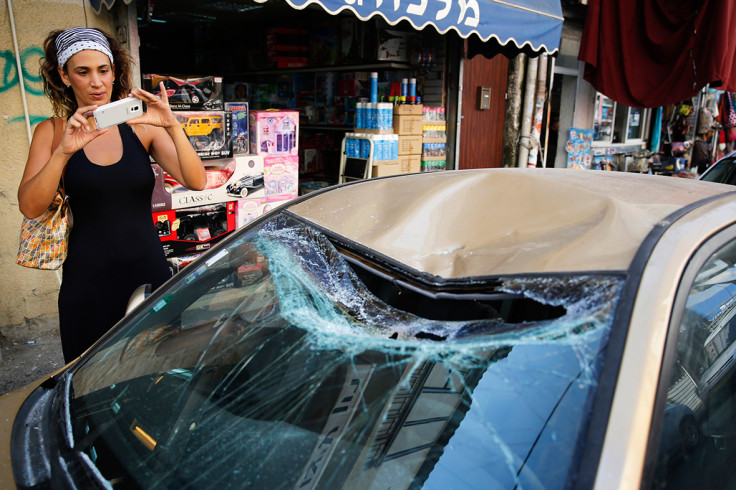Inside Israel: Tel Aviv Hotels Predict Six Months More of Economic Pain

Walking along the beach in Tel Aviv, it's impossible to miss the Intercontinental hotel. The beachfront fortress rises at the southern end of the sandy strip, towering high above an adjacent mosque. The imposing exterior is bettered only by the security measures inside the building.
I am assured by the hotel manager, David Cohen, that each of the hotel's floors is equipped with its own bomb shelter. It is a feature that was used frequently throughout the summer.
Sitting down with David in the plushest suite in the building, overlooking the shimmering Mediterranean, the deadly war between Israel and Hamas feels as distant as the windsurfers riding this morning's waves. More than 2,200 Palestinians were killed in the conflict, the vast majority were civilians. Some 66 Israeli soldiers were killed in the fighting, along with seven civilians.
"I was away in a summer camp with my son. As I was chopping the cucumbers and tomatoes for 600 kids, suddenly it was brought to my attention that a missile was fired on Tel Aviv... This came out of nowhere. It was an absolute surprise," says Cohen.
"The same day we had a peace conference for 1,800 people in the building. The occupancy in the hotel was in the region of 90%. We were preparing for the peak summer season."
The conflict not only reached the shores of Tel Aviv in the summer, but its impact is still being keenly felt in the city's tourism sector today. A wave of cancellations hit Tel Aviv's hotels and hostels, while bars and restaurants remained empty as the death toll mounted on both sides.
"There was an absolute affect in July and August. Some say the war cost 6bn shekels, some say it was 8bn shekels, in general terms it's a big number. It's a very big number and we need all the support we can get to in order to get our economy going," he says.
"For July and August we actually had a drop in business. Those being our peak months with average occupancies of 85% - 88%, that was our anticipation before the war. We actually concluded them at 50%. What was reassuring was that I actually thought we would be around the 30% mark."
Cohen told IBTimes UK that he does not expect a full recovery until April, as the peak summer season for foreign tourists had been lost.
"Quarter 1 in Tel Aviv usually is not that busy, it's around the 65-70% mark. As of April we would expect occupancies of the mid-80s and upwards... I think that the drop of the first quarter of the year is not as dramatic as one would think."
© Copyright IBTimes 2025. All rights reserved.






















